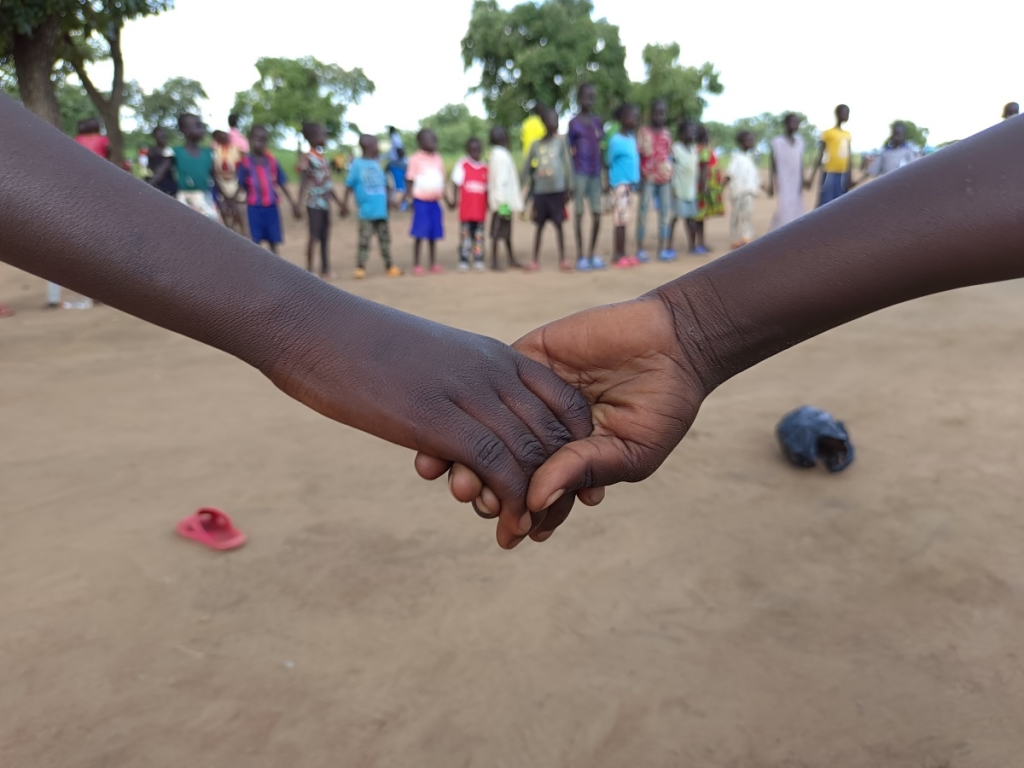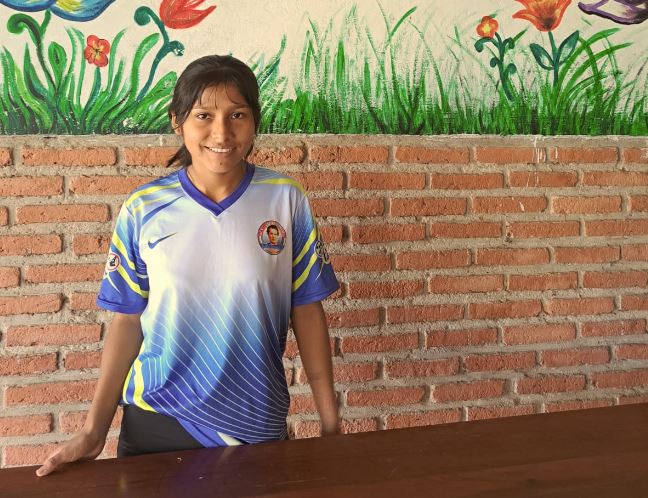INTERNATIONAL DAY FOR STREET CHILDREN: Salesian Missions highlights rehabilitation, social programs impacting street youth around the globe
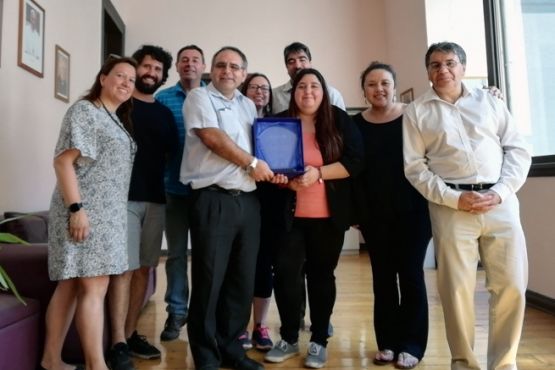
(MissionNewswire) Salesian Missions joins the United Nations (UN) and organizations around the globe in highlighting the plight of children on the International Day for Street Children. The day provides organizations, and the millions of street children in countries worldwide, an opportunity to have their voices heard while ensuring that their rights are not ignored.
Celebrated each year on April 12, the day was established by the UN to raise awareness of issues affecting youth forced to live on the streets. This year, the focus of the day is on equality for street children. Street children are too often denied the rights to healthcare, shelter, nutrition, education, justice when they are harmed and freedom from harassment and abuse.
The Consortium for Street Children founded the International Day for Street Children in 2011 and is the leading international network dedicated to realizing the rights of street children worldwide. This year’s theme, “Commit to Equality,” calls on governments to recognize that street children have the same rights as any other child – and this should be reflected in law and policy.
They are asking the public to call on governments to take three specific steps for street children including: stopping police from round-ups of street children; giving street children legal ID so they can access services like healthcare and education; and stopping arrests and punishments for street children just because they spend time on the streets.
Every day millions of street children suffer multiple and repeated violations of their rights, and as a result of ongoing conflicts in the Middle East, recession in Europe, natural disasters in Asia and Africa and many other factors, the number of children living on the streets is expected to rise, according to the Consortium for Street Children.
“Children who are living on the streets experience discrimination and exclusion every day,” says Father Mark Hyde, director of Salesian Missions, the U.S. development arm of the Salesians of Don Bosco. “Children who are able to access programs that help youth come in off the streets where they face poverty and are at risk for exploitation, have a chance at a better life. Salesian programs aim to help children live safely while getting the emotional support they need and the education that will help them live independently.”
In honor of the International Day for Street Children 2019, Salesian Missions is proud to share some of its programs around the globe that provide shelter, nutrition, education and hope for a better life for street children.
CHILE
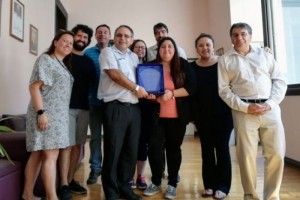 The Don Bosco Foundation in Santiago, Chile, won a “Social impact technologies” award for its new Registro Circuito de Calle (Register of Streets Circuit) app. Helping to improve intervention for street children, the new app was developed by the Don Bosco Foundation in collaboration with Fundación País Digital of Microsoft Chile and DonaTec, an online donation program for the non-governmental agency, CDI Chile.
The Don Bosco Foundation in Santiago, Chile, won a “Social impact technologies” award for its new Registro Circuito de Calle (Register of Streets Circuit) app. Helping to improve intervention for street children, the new app was developed by the Don Bosco Foundation in collaboration with Fundación País Digital of Microsoft Chile and DonaTec, an online donation program for the non-governmental agency, CDI Chile.
The app allows users to update mapping within a territory, providing intervention teams with online information that will increase their knowledge of the territories and enable support for planning visits to increase the chances of meeting with minors in the streets.
It also helps teams better plan their actions and social operations on the road so they can choose the most effective strategies for intervening with youth who are living in even the most hidden areas. In addition, the app will characterize the territories to better show the transit of minors as well as track what they do and what they are exposed to in those areas.
Microsoft Power Apps was used to develop the application, Excel online was used to record and save data, and OneDrive and Power Bi were used for the analysis and geo-referencing of the subjects. The app also has software that allows users to share all the information in a collaborative way.
DR CONGO
 Salesian missionaries have prioritized working with youth living on the streets in the city of Lubumbashi in the southeastern region of the Democratic Republic of Congo.* Lubumbashi and its surrounding areas have a population close to 8.2 million with most living in poverty. While the city has both agricultural and mineral resource wealth, it faces numerous economic and social challenges.
Salesian missionaries have prioritized working with youth living on the streets in the city of Lubumbashi in the southeastern region of the Democratic Republic of Congo.* Lubumbashi and its surrounding areas have a population close to 8.2 million with most living in poverty. While the city has both agricultural and mineral resource wealth, it faces numerous economic and social challenges.
Many youth, even those as young as 7 years old, have grown accustomed to living on the streets. Salesian missionaries encourage youth to seek the support of caring adults who can help them turn their lives around and connect them with appropriate shelter and education. In Lubumbashi, missionaries operate Bakanja Ville which is part of the local Salesian Bakanja Center for homeless children. Bakanja Ville marks the first stop in the process of welcoming children into the Salesian program, acting as a drop-in center and reception center for homeless youth who are looking to escape the challenges of living on the streets.
The doors of Bakanja Ville are always open. Youth can access the program to take a shower, sleep, eat, wash their clothes and engage in activities. A personal file is opened for each young person who enters. Then, Salesian missionaries begin a search for family to see if reintegration is possible with the help of social workers. If not, youth are tracked into other Salesian programs where they can access education and have their basic needs met. Salesian missionaries also go out into the street twice a month to help connect with street children in their own environment to tell them about the program and offer them a safe place to stay.
ETHIOPIA
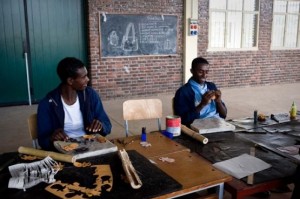 Thanks to a partnership between the Don Bosco International Volunteers for Development (VIS) and the United Nations Office on Drugs and Crime (UNODC), youth in Addis Ababa, Ethiopia, have access to education and a chance for a better life.
Thanks to a partnership between the Don Bosco International Volunteers for Development (VIS) and the United Nations Office on Drugs and Crime (UNODC), youth in Addis Ababa, Ethiopia, have access to education and a chance for a better life.
Determined to address one of Ethiopia’s most pressing socioeconomic challenges—the burgeoning number of abandoned, runaway and otherwise at-risk children fending for themselves in the city—Don Bosco VIS and UNODC launched the “Rehabilitation and Reintegration Services for Children in Conflict with the Law” initiative in November 2015.
As a result of this initiative, 100 youth now live at the Bosco Children Project home in the compassionate care of Salesian missionaries. The Bosco Children Project provides support and educational services in addition to an outreach orientation center and a hostel for youth, mostly boys, who are orphaned or live on the street.
At the home, youth receive shelter, meals, warm clothing, psychosocial counseling and access to basic education and literacy classes. Once ready, they participate in a skills training orientation where they experience a variety of vocational courses in automotive, carpentry, culinary arts and more.
PHILIPPINES
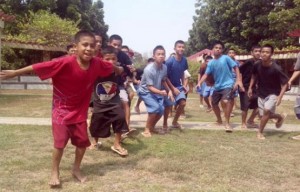 The Salesian-run Tuloy Foundation in Muntinlupa, the southernmost city of the 16 cities that make up Metro Manila or the Philippines National Capital Region, provides residential care services and education for more than 800 street, migrant and orphan youth. Founded in 1993 by Father Marciano “Rocky” G. Evangelista, the foundation began with just 12 children.
The Salesian-run Tuloy Foundation in Muntinlupa, the southernmost city of the 16 cities that make up Metro Manila or the Philippines National Capital Region, provides residential care services and education for more than 800 street, migrant and orphan youth. Founded in 1993 by Father Marciano “Rocky” G. Evangelista, the foundation began with just 12 children.
Since that time, the Tuloy Foundation has grown to encompass multiple programs and facilities and has helped thousands of youth gain an education and go on to lead successful lives. More than 20,000 children have been impacted by its programs, according to a recent article by the Sun Star Manila.
Access to education is a critical component to overcoming poverty. In the Philippines, drop-out rates double as children reach secondary school and there are more than 11 million out-of-school youth, according to UNICEF. Almost a quarter of the country’s population, including a large percentage of children, live in poverty.
The Tuloy Foundation goes beyond providing a home for at-risk youth. The first step of getting children off the streets removes them from exposure to begging, theft, drugs, prostitution and other negative influences. For children who are at least 9 years old, the foundation offers a school program which begins in first grade and continues through technical training.
Those who are just coming in off the streets receive food, clothing, shelter, healthcare, recreation, education and skills training. Older youth pursue technical training in a variety of technologies including automotive, electrical, welding and woodworking in addition to other studies. Participants also have the ability to access on-the-job training in sponsor companies.
###
Sources:
ANS Photos (usage permissions and guidelines must be requested from ANS)
ETHIOPIA: Homeless and abandoned youth have chance at a better life thanks to Bosco Children Project
*Any goods, services, or funds provided by Salesian Missions to programs located in this country were administered in compliance with applicable laws and regulations, including sanctions administered by the U.S. Department of Treasury’s Office of Foreign Asset Control.


